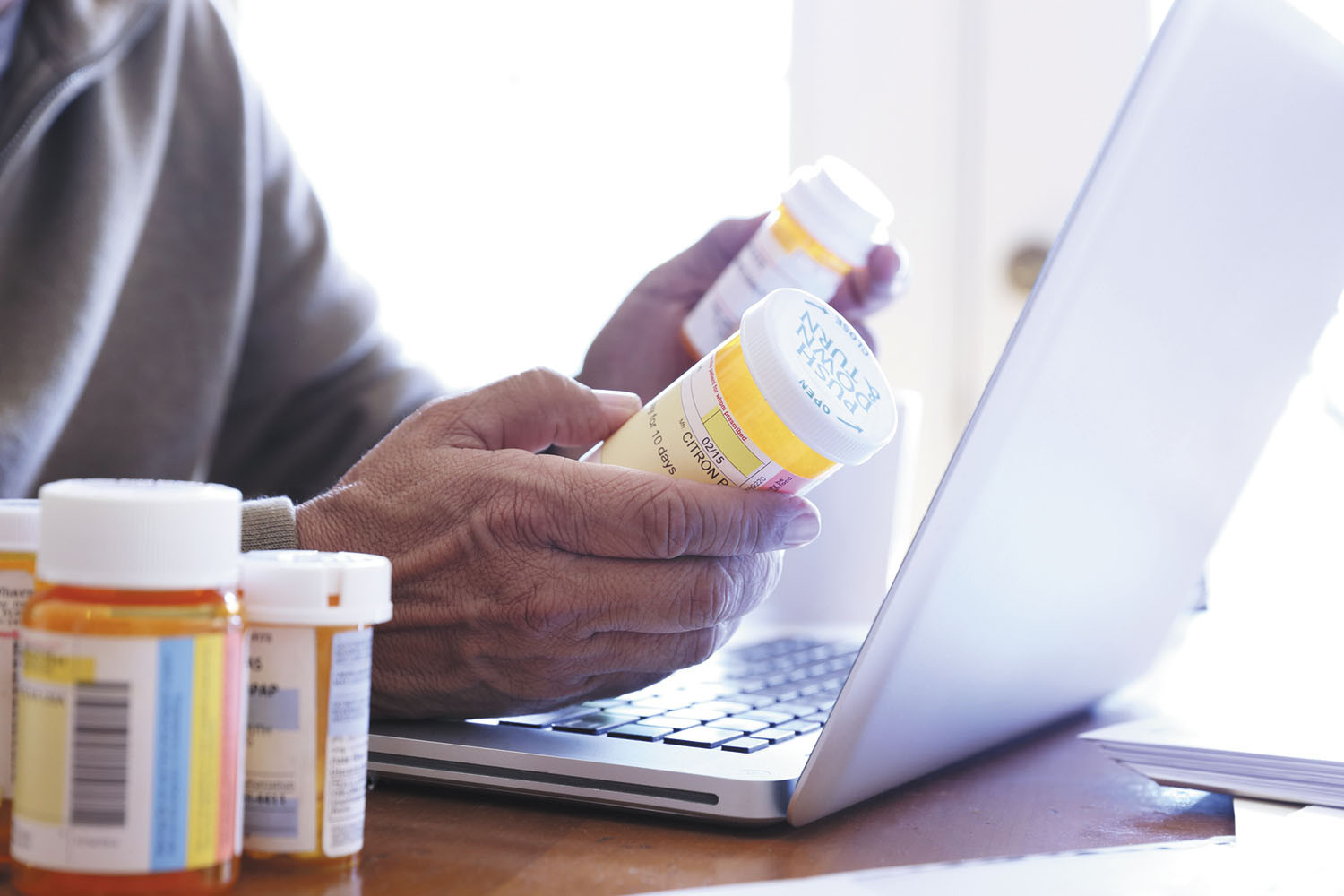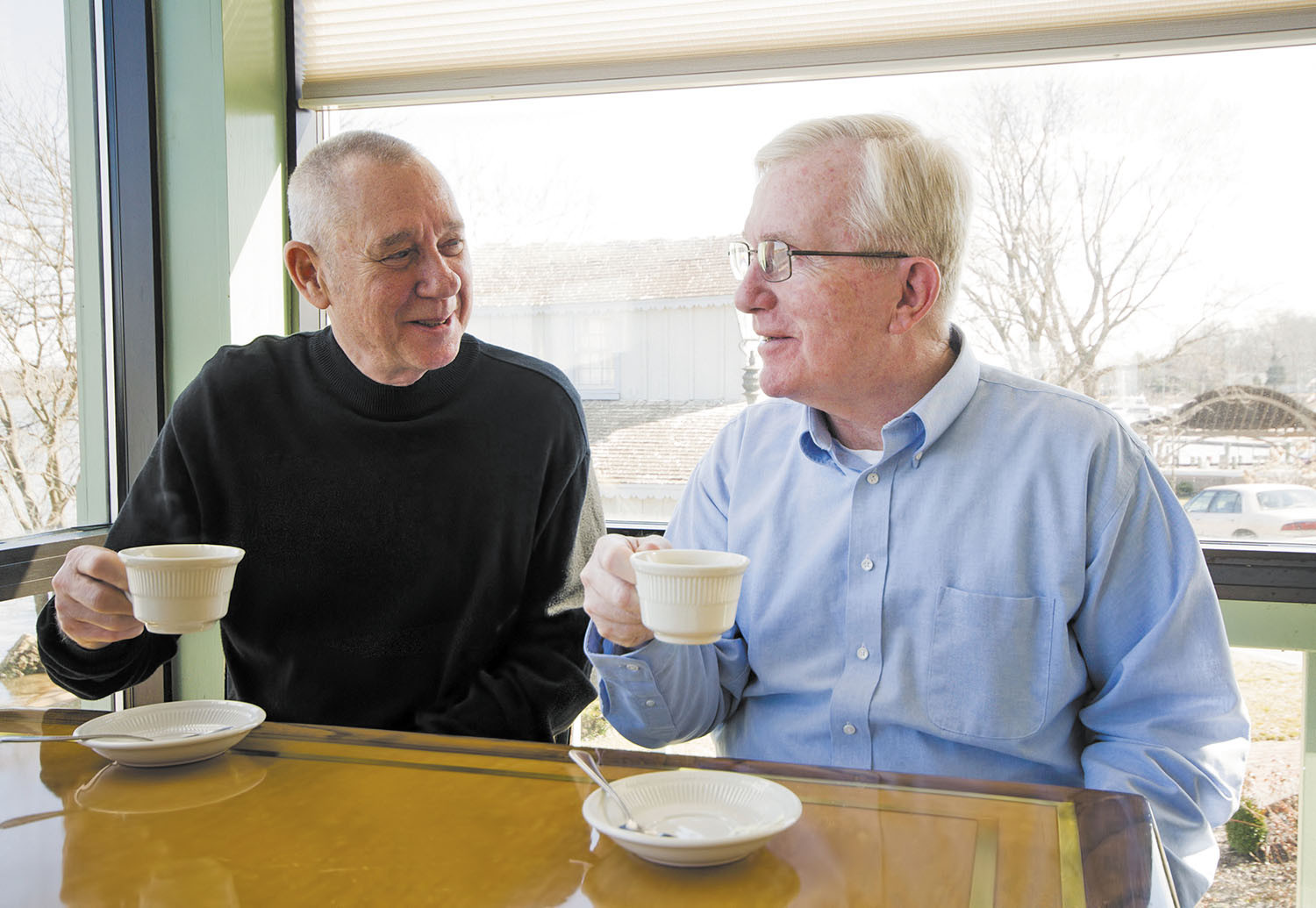
5 timeless habits for better health

What are the symptoms of prostate cancer?

Is your breakfast cereal healthy?

When pain signals an emergency: Symptoms you should never ignore

Does exercise give you energy?

Acupuncture for pain relief: How it works and what to expect

How to avoid jet lag: Tips for staying alert when you travel

Biofeedback therapy: How it works and how it can help relieve pain

Best vitamins and minerals for energy

Should you take probiotics with antibiotics?
Staying Healthy Archive
Articles
Tips for success when your kids are on your health care team
Be upfront about your needs, and set your own ground rules.
Image: © SelectStock/Getty Images
Allowing your kids to be involved in your health care can have many benefits. The arrangement provides advocates who can help you follow your treatment plan, talk to your doctors, and maybe even make appointments and take you to them. As an added bonus, you get to spend more time with your adult children.
But the arrangement isn't always easy. "There's a tendency for roles to reverse. The child becomes the parent. The parent may not be comfortable with that. Or the parent doesn't want to burden the child, and lets health issues go until they're too far gone," says Dr. Suzanne Salamon, associate chief of gerontology at Harvard-affiliated Beth Israel Deaconess Medical Center. Consider the following tips to navigate the relationship.
Do urgent care clinics overprescribe antibiotics?
News briefs
Image: © AlexRaths/Getty Images
Urgent care clinics are convenient when you don't feel well and can't see your doctor right away. But a study published online July 16, 2018, by JAMA Internal Medicine found that people who go to such clinics may be more likely to be given prescriptions for unnecessary antibiotics. Researchers analyzed 156 million insurance claims from 2014 and found that 46% of people treated at urgent care centers for viral conditions — like a bad cold, the flu, or viral bronchitis — were prescribed antibiotics. The problem: antibiotics kill only bacteria, not viruses. The study underscores the need to ask health care workers if you have a viral or a bacterial condition before you take antibiotics.
Scam targets people buying medicine online
News briefs
Image: © DNY59/Getty Images
If you've tried to buy medications by phone or on the Internet but received an FDA warning letter instead, beware. The FDA warns that criminals are forging these notes, possibly with the goal of later getting your money. The letters look official, like they're from the FDA or the Federal Trade Commission, and they claim that the FDA has identified drug violations based on a review of your parcel and social media accounts. Don't be fooled. The FDA doesn't send letters to consumers. So why are you getting one? The FDA says it may be because you're contacting an illegal online pharmacy. "Many of these illegal websites appear legitimate, and it can be hard to tell the difference," notes FDA Commissioner Scott Gottlieb. They may try to sell your personal information or charge you for products you never ordered. And scams aren't the only risks. Illegal pharmacies typically sell counterfeit — and unsafe — medicines. If you believe you've received a fake warning letter, email the FDA at FDAInternetPharmacyTaskForce-CDER@fda.hhs.gov. Send information about the letter or a scan or photo of the document.
City air won’t dampen workout benefits
Research we're watching
Image: © RoBeDeRo/Getty Images
Good news for urban dwellers: the heart benefits of your workout aren't canceled out by health risks caused by car exhaust fumes in the city air you breathe. A study in the Journal of the American Heart Association found that regular workouts still reduce the risk of heart attack even when people are regularly exposed to moderate to high levels of air pollution caused by traffic. Air pollution is known to raise risk for heart attacks as well as respiratory problems, including asthma and chronic obstructive pulmonary disease. Researchers studied data on more than 51,000 people ages 50 to 65, looking at how often the people exercised and other lifestyle factors, as well as their exposure to the traffic pollutant nitrogen dioxide. Over a period of nearly 18 years, nearly 3,000 of these people had a first heart attack, and 324 had a recurrent heart attack.
People who lived in areas with higher nitrogen dioxide levels had a 17% higher risk of having a first heart attack and a 39% higher risk of a recurrent heart attack, compared with those who had low exposure to traffic pollution. But regular exercise appeared to reduce that risk. Active participants had a 15% lower rate of initial heart attacks, regardless of air quality. So, even if the air you are breathing is less than ideal, regular workouts help protect your heart.
Refueling your energy levels
Lost your spark and gusto? These strategies can help you recharge.
Everyone has the occasional low-energy day when you are easily fatigued. Often the feeling passes, and you bounce back to your regular robust self. But if you struggle with a constant lack of energy, you may have a problem deep within your cells.
Mitochondria are the power source inside all your body's cells. These tiny structures fuel the body by producing molecules called adenosine triphosphate or ATP. However, as you grow older, your body has fewer mitochondria.
An introvert’s guide to healthy social engagement
Being more social is linked with greater health benefits, but what if you're not comfortable in the company of others?
Image: © Robert Kirk/Getty Images
Research continues to stress the relationship between social connection and long-term health. Interacting regularly with other people appears to lower your risk for heart disease, depression, and early death.
But what if being social is not who you are? People who are introverts — that is, they prefer time alone over group outings — are often at a disadvantage when it comes to social engagement.
Rating heart monitors
Here is why you should invest in this fitness technology.
Image: © Nastasic/Getty Images
There is a lot of technology that tracks your health, from counting steps to counting burned calories. One of the most valuable fitness tools though is a heart rate monitor, which tells you how many beats your heart takes per minute.
"Whether you're just getting started with an exercise routine or are a committed fitness enthusiast, tracking your heart rate can help you maintain the necessary moderate level of intensity for optimal benefits without worrying about doing too much or too little," says Dr. Aaron L. Baggish, associate director of the Cardiovascular Performance Program at Harvard-affiliated Massachusetts General Hospital.
Poor vision affects driving skills and brain function
In the journals
Image: © Martin Barraud/Getty Images
More reasons to take good care of your eyes: it may protect against cognitive decline and keep you safe behind the wheel, according to two studies published online June 28, 2018, by JAMA Ophthalmology.
In the first study, researchers looked at almost 560,000 adults ages 65 and older and found they had 9% fewer serious car crashes in the year following cataract surgery. Besides causing blurry vision, cataracts can intensify the glare from headlights and sunlight, which can make driving dangerous, according to the researchers.
Feeling young could signal a younger brain
In the journals
People who feel younger than their actual age also may have brains that age more slowly, suggests a small study published online June 7, 2018, by Frontiers in Aging Neuroscience.
Scientists took brain scans of 68 healthy older adults, ages 59 to 84, to measure the volume of gray matter in various regions. The participants then answered surveys to determine if they felt older or younger than their age and to measure their cognitive abilities and perceptions of overall health.

5 timeless habits for better health

What are the symptoms of prostate cancer?

Is your breakfast cereal healthy?

When pain signals an emergency: Symptoms you should never ignore

Does exercise give you energy?

Acupuncture for pain relief: How it works and what to expect

How to avoid jet lag: Tips for staying alert when you travel

Biofeedback therapy: How it works and how it can help relieve pain

Best vitamins and minerals for energy

Should you take probiotics with antibiotics?
Free Healthbeat Signup
Get the latest in health news delivered to your inbox!
Sign Up











